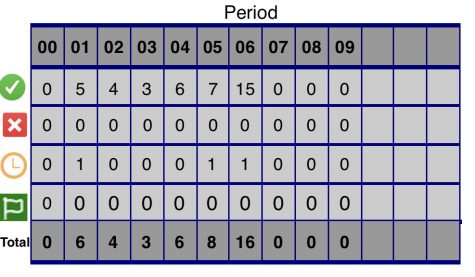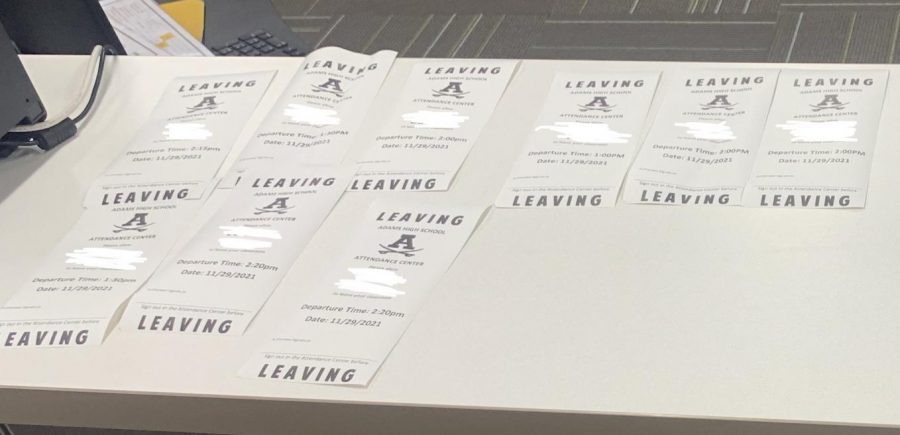Adams Attendance Policy. Is Being Present a Priority?
An abundance of attendance slips is a common sight for people passing through the main office.
Adams High School in Rochester Hills, Michigan adopted an Attendance Policy in 2017. However, as of this academic year, the policy was stopped during the COVID-19 pandemic.
The attendance policy required students who missed more than three days of school to take exams, and those who missed less were exempt. This policy led to outstanding attendance for the years in which it was implemented, but the downside of this system was that students would attend school with illnesses.
When schools transitioned to remote learning, and classes over zoom became the daily educational routine, kids were no longer held accountable for attendance.
“The reality is that right now, when people talk about the pandemic in the past this is not the reality, we are currently still amidst it,” said assistant principal Todd Calcamugio.
Currently, even though students are back to in-person learning for the 2021-22 academic year, the attendance policy remains a thing of the past. Exams are still not mandated at Adams, which allows students to miss school with no ramifications.
The blatant truth is that without this policy and the threat of exams looming over students, absences at Adams have skyrocketed in the past months. The writer of this article also has taken advantage of this new freedom from attendance requirements, as it has tanked along with many of my peers. From a person who never missed school, my absences have gone up by 9% this year.
Students felt pressure to come to classes when the attendance policy was enacted; taking exams was a nightmare many refused to face. It was rare for an Adams student to be seen running late, let alone missing class.
As I recall a conversation with a friend, I realize this is far from the reality today; “You’re running late too?” I said to my passing peer. “Yeah, it’s not like there is an attendance policy anymore,” said my friend.
“Coming to school was more important to me before the pandemic, whether or not I was doing something important in class,” said senior Liz Poussier.

Now that students have the ability to leave school with an excused absence, it is harder to stay in classes when study halls or projects over multiple days are assigned. When kids miss these study hours, they are slowly succumbing to procrastination, pushing back their assignments until the deadline.
The senior class at Adams has never experienced a season of exams while attending, leading to a debate over whether or not students will be prepared for a college-level rigor, which includes exams. Being in school could eliminate this doubt for many and has in the past. But now, with no test-taking skills and a lack of urgency to be present, students are rightfully concerned for their academics.
After various COVID-19 outbreaks at the school and two-week quarantine periods being sentenced frequently, the attendance policy will never again be in place as kids felt pressured to attend when ill, which is simply not an option anymore. The policy is now being questioned as to whether it had ever been valuable. Are kids truly receiving their best education when they are simultaneously recovering from sickness?
The attendance policy had apparent benefits while in place, including the highest attendance rates Adams had ever maintained. However, now students will have to use personal judgment and be accountable in regard to their attendance.
The administrative body at Adams suggests that students stay at home when feeling ill and encourage presence and punctuality when healthy.










